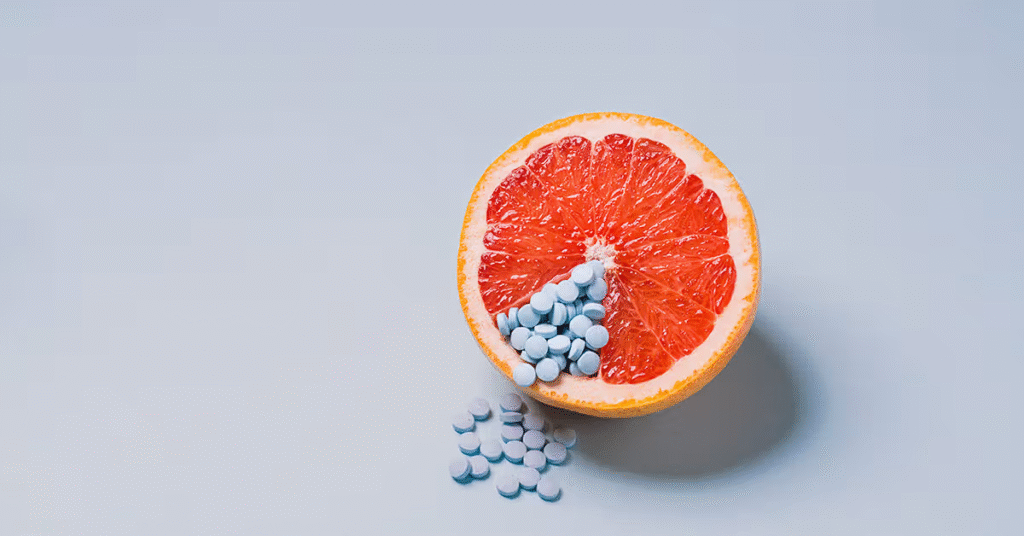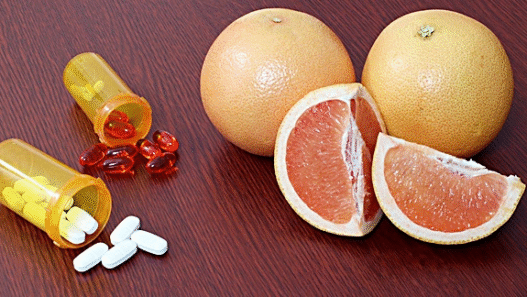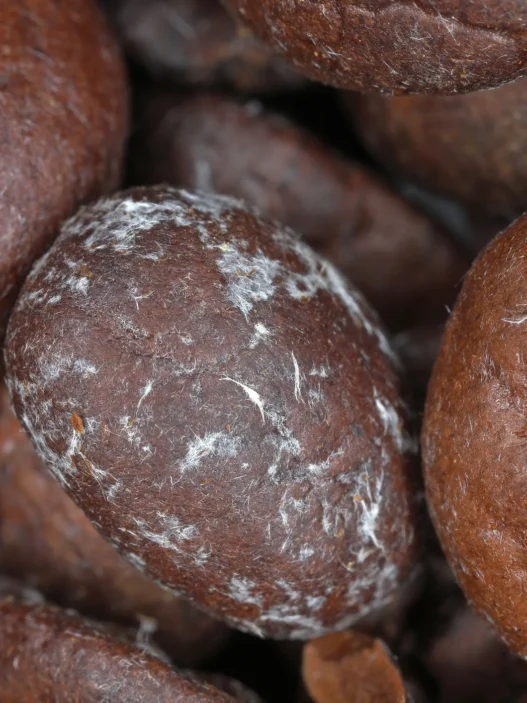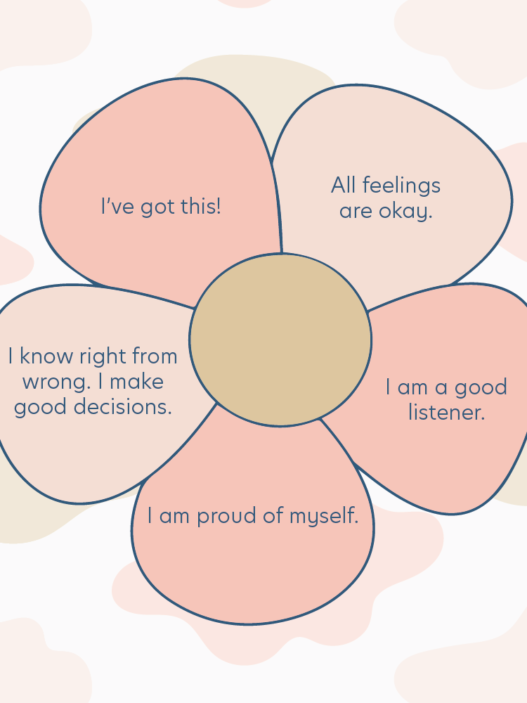Okay, so here’s the thing – grapefruit looks super harmless, right? It’s fruity, tangy, kinda fancy in your morning smoothie. But plot twist, that pretty pink fruit can actually mess with a bunch of medicines. Like, for real.
If you’re taking certain meds and also drinking grapefruit juice (especially daily), you might be changing how that medicine works in your body without even realizing it. It’s not about being dramatic – it’s just how your liver processes stuff.
Let’s break it down in simple words:
Why Does Grapefruit Mess With Meds?
This is the condensed version: Furanocoumarins, I know, it sounds like a Marvel villain – are compounds found in grapefruit. They prevent your liver’s enzyme from breaking down some medications.
The medication remains in your body longer and in greater quantities than it should when that enzyme is inhibited. In essence, it’s similar to inadvertently taking too much, which can result in more severe adverse effects or even harmful reactions.
1. Cholesterol Medications
If you’re taking meds for high cholesterol, like:
- Atorvastatin
- Simvastatin
- Lovastatin
Then grapefruit juice is kinda your enemy. It makes the drug build up in your system, which can lead to muscle pain, weakness, or even liver damage. So yeah, maybe skip the grapefruit breakfast bowl on these ones.
2. Blood Pressure Meds
Some meds that keep your blood pressure in check – like Nifedipine, Felodipine, or sometimes Amlodipine – don’t love grapefruit either. It can make the drug stronger, dropping your blood pressure too low and making you dizzy or lightheaded. Basically, not fun.
3. Anxiety & Sleep Meds
People on Buspirone (Buspar), Diazepam (Valium), or Triazolam (Halcion) – heads up. Grapefruit can make these meds hit harder, making you extra sleepy or groggy. Like, “I fell asleep on my laptop” sleepy.
4. Heart Rhythm Meds
Drugs like Amiodarone and Dronedarone are super sensitive to grapefruit. Mixing them can lead to irregular heartbeats, and not the cute, romantic kind. It’s honestly one of the riskier combos out there.
5. Blood Thinners
Meds like Apixaban (Eliquis) or Rivaroxaban (Xarelto) help prevent clots, but grapefruit can mess with how they work. That means too much bleeding or, on the flip side, not thinning your blood enough. Either way, not something to gamble with.
6. Immunosuppressants (Transplant Meds)
If you’ve had an organ transplant, you’re probably on meds like Tacrolimus or Cyclosporine. Grapefruit can make these spike in your bloodstream, which can be toxic. Even small changes can throw things off, so this one’s a firm nope.
7. Mental Health Medication
Some antidepressants and antipsychotics like Sertraline, Quetiapine, and Lurasidone can interact too. Grapefruit can make them linger longer, so you might feel drowsy, dizzy, or just off.
8. Pain & Gout Meds
Painkillers like Oxycodone and Fentanyl can be stronger if you mix them with grapefruit juice. Also, Colchicine (for gout) can build up to toxic levels if you drink grapefruit juice regularly.

Real Reddit Reviews
Here’s what real people said on Reddit (and honestly, it’s eye-opening):
1. “I didn’t believe my doc when she said no grapefruit. Took my meds with juice for a week and ended up super dizzy and nauseous. Never again.”
2. “My pharmacist warned me but I forgot. One glass of grapefruit juice + my cholesterol meds = worst muscle pain of my life.”
3. “Didn’t even think about it. I was drinking grapefruit-flavored sparkling water while on anxiety meds. Felt so tired and out of it. Turns out it was the juice.”

FAQs
Can I eat grapefruit if I take meds?
Depends on the medication. Always check the label or ask your doctor/pharmacist.
Is it only grapefruit juice or the fruit too?
Both! Even half a grapefruit can affect how your body processes meds.
What about other citrus fruits?
Oranges, lemons, and limes are fine. Pomelo can sometimes have similar effects though.
If I stop drinking it, am I good immediately?
Not right away – it can take a day or two for your body to clear the grapefruit compounds.

Final Thoughts
So yeah, grapefruit isn’t the villain, it’s just… complicated. It’s healthy, full of vitamin C, and tastes amazing, but it’s not for everyone – especially if you’re taking certain meds.
If your prescription says “avoid grapefruit,” it’s not a joke. Always ask your doctor or pharmacist before mixing the two. One quick question could save you from feeling awful or ending up in the ER.
Moral of the story: grapefruit might be great for brunch, but not always great for your meds.

















